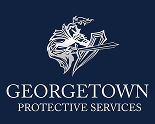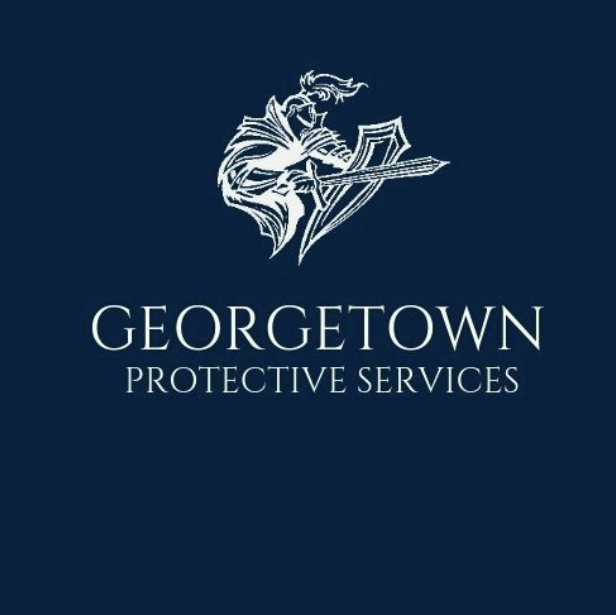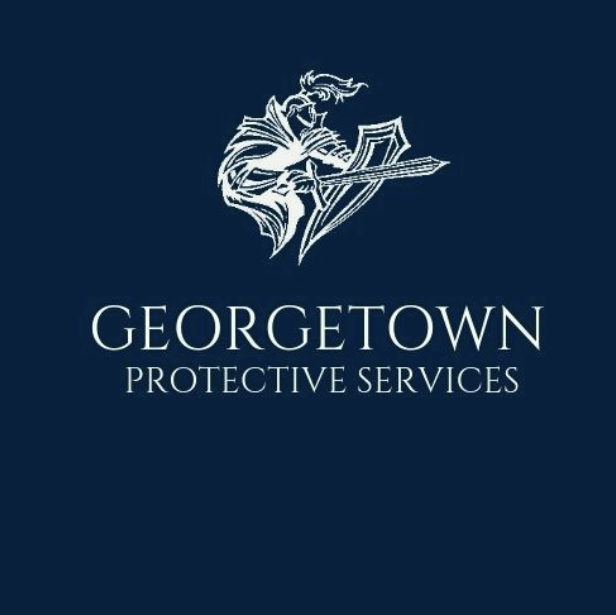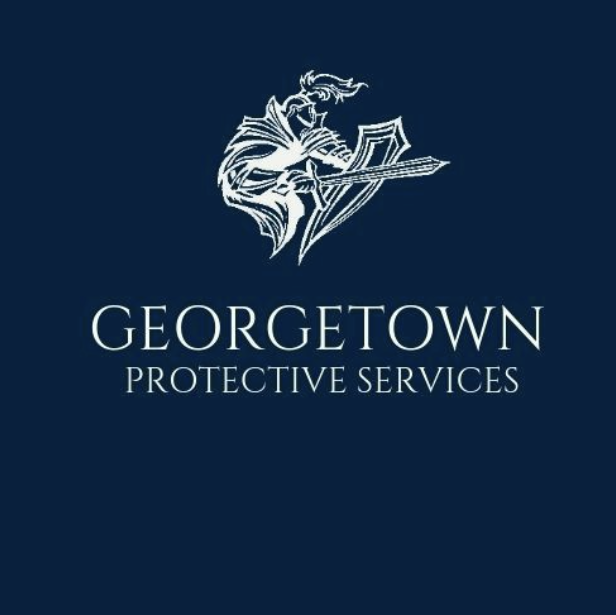Armed security insurance is specialized coverage designed for security companies employing armed personnel, such as Georgetown Protective Services. It addresses substantial risks associated with gun-carrying security operations and goes well beyond standard business insurance.
"The stakes in the armed security industry have never been higher. With increasing security threats and heightened liability concerns in 2025, security firms face potentially catastrophic financial exposure without proper insurance protection. A single incident involving an armed guard could result in multi-million dollar claims that could bankrupt an otherwise successful security operation overnight."
Estimated Reading Time: 14 minutes
Key Takeaways
- Armed security insurance protects against unique, high-stakes risks involving firearms and liability claims.
- Coverage requirements and costs are rising in 2025—thorough risk management and policy review are essential.
- Choosing a specialized provider and comprehensive coverage is a critical business decision for armed security companies.
- Premiums reflect company size, location, loss history, and security protocols.
- Top providers: Allied World, The Hartford, XINSURANCE, Nationwide (with El Dorado Insurance Agency), CNA, Prime Insurance Company, Hiscox.
- Legal defense costs and coverage exclusions are major factors to assess.
Table of Contents
- Who Needs Armed Security Insurance?
- Key Risks and Exposures Unique to Armed Security
- What Does Armed Security Insurance Cover?
- Armed vs. Unarmed Security Insurance: Critical Differences
- Eligibility, Compliance, and Underwriting Requirements
- How Much Does Armed Security Insurance Cost?
- Top Providers for Armed Security Insurance in 2025
- How to Choose the Right Armed Security Insurance Policy
- Frequently Asked Questions (FAQ)
- Conclusion and Next Steps
Who Needs Armed Security Insurance?
Armed security insurance is critical for a wide range of organizations, including:
- Security companies providing armed guards (like Georgetown Protective Services)
- Executive protection firms safeguarding high-profile individuals
- Event security specialists managing large public gatherings
- Financial institutions employing armed security
- Retail establishments with on-site armed guards
- Critical infrastructure protection providers
The regulatory landscape is increasingly complex in 2025. DC, Maryland, Virginia, and West Virginia have strict and varying insurance requirements for armed security licensing. Many states mandate proof of coverage before issuing or renewing armed security licenses.
Common scenarios requiring comprehensive coverage:
- High-value asset protection
- Executive transportation security
- Event security at concerts, conventions, political gatherings
- Critical facility protection
- Response to active threat situations
Key Risks and Exposures Unique to Armed Security
Legal Liabilities
- Firearm discharge incidents: Any use, justified or not, can trigger enormous legal exposure
- Excessive force claims: Allegations of more force than necessary
- Wrongful death/injury lawsuits: Eight-figure settlements are not uncommon in 2025
- Civil rights violations: Claims of discrimination or profiling
Financial and Reputational Risks
- Legal defense costs: Can reach hundreds of thousands, even when successfully defended
- Settlement expenses: Armed security incident settlement average: $2.3 million in 2025
- Reputational damage: Security incidents can devastate reputation and client relationships
- Lost business: Contract terminations often follow serious incidents
Worker and Third-Party Considerations
- Security officer injuries
- Bystander injuries
- Damage to protected client property
What Does Armed Security Insurance Cover?
A comprehensive policy usually includes:
- General Liability
- Bodily injury claims (third party)
- Property damage to client facilities
- Personal injury such as defamation, false arrest
- Weapons/Firearms Liability
- Incidents involving firearms
- Claims from use of tasers, batons, other weapons
- Improper weapons handling defense
- Professional Liability/Errors & Omissions
- Failure to provide contracted services
- Negligent security planning
- Judgment errors in threat assessment
- Workers' Compensation
- Treatment for injured personnel
- Wage replacement
- Rehabilitation
- Commercial Auto
- Security vehicles coverage
- Incidents during transport
- Accidents during patrols
- Additional Essential Coverages
- Assault & Battery: Crucial but often excluded from standard policies
- Cyber Liability: Data breach protection
- Umbrella/Excess Liability: Coverage beyond basic limits (often $5–10 million)
Armed vs. Unarmed Security Insurance: Critical Differences
| Feature | Armed Security Insurance | Unarmed Security Insurance |
|---|---|---|
| Firearms/Weapons Coverage | Included and essential; addresses weapon use | Not included; excludes weapon-related incidents |
| Underwriting Requirements | Rigorous; extensive documentation required | Less stringent; basic protocols |
| Typical Premiums | 30-50% higher due to risk profile | Lower due to reduced liability exposure |
| Training/Certification | Weapons qualifications and ongoing trainings | Basic training typically sufficient |
| Claims Frequency/Severity | Less frequent, but can be catastrophic | More frequent, generally lower severity |
| Policy Exclusions | Fewer, but stricter requirements | More, especially force-related |
| Coverage Limits | Higher minimums (often $2M+) | Lower limits (often $1M) |
Eligibility, Compliance, and Underwriting Requirements
Eligibility Requirements
- Properly licensed; good standing
- Clean or explainable claims history
- Documented procedures & protocols
- 2+ years in business
- Financial and credit stability
Required Documentation
- Personnel Records: Backgrounds, firearms qualifications, trainings
- Operating Procedures: Use of force, weapons policies, incident response
- Training Programs: Evidence of continuing education
- Licenses/Permits: All relevant state/federal documentation
- Client Contracts: Clear scope/limitations
Cost Reduction Strategies
- Comprehensive risk management
- Exceed minimum trainings
- Maintain thorough records
- Adopt advanced monitoring technology
- Use insurance brokers specializing in armed security
How Much Does Armed Security Insurance Cost?
Primary Cost Factors
- Company size (number of armed guards)
- Operating locations (urban vs. rural, state)
- Coverage types and limits
- Claims and loss history
- Experience (company and personnel)
- Types of clients and assignments (high-risk increase premiums)
2025 Price Ranges
- General Liability: $15,000–$30,000 annually
- Professional Liability: $10,000–$25,000 annually
- Weapons Liability: $20,000–$45,000 annually
- Workers' Compensation: $1,500–$3,000 per guard/year
- Total Package: $75,000–$150,000+ annually (for 20-50 guards)
Many providers now offer competitive bundle packages for armed security operations.
Top Providers for Armed Security Insurance in 2025
1. Allied World (SecurityPro Program)
- Strengths: Coverage for armed operations, excellent claims service, expert underwriters
- Coverage Focus: Broad firearms liability, fewer exclusions
- Ideal For: Mid to large security operations
2. The Hartford
- Strengths: Financial stability, customizable options, risk management resources
- Coverage Focus: Workers' compensation and return-to-work programs
- Ideal For: Firms with diverse offerings
3. XINSURANCE
- Strengths: Covers high-risk and previous claims situations
- Coverage Focus: Fills gaps traditional insurers won’t cover
- Ideal For: Highest-risk environments and firms with previous incidents
4. Nationwide (with El Dorado Insurance Agency)
- Strengths: Specialized brokers; competitive rates
- Coverage Focus: Assault and battery coverage; comprehensive packages
- Ideal For: Small to mid-size security companies
5. CNA
- Strengths: Decades of experience; strong legal defense resources
- Coverage Focus: Security-specific professional liability
- Ideal For: Established firms with robust risk management
6. Prime Insurance Company
- Strengths: Flexible underwriting; willing to cover non-standard risks
- Coverage Focus: Excess/surplus lines for unique needs
- Ideal For: Firms declined by standard markets
7. Hiscox
- Strengths: Digital-first, streamlined application
- Coverage Focus: Professional liability with cyber enhancements
- Ideal For: New companies with tech-forward focus
When comparing providers, look for:
- Documented experience with armed security firms
- Clear understanding of evolving legal landscape
- Strong financial ratings (A.M. Best A or better)
- Dedicated claims handlers
- Supportive risk management resources
How to Choose the Right Armed Security Insurance Policy
Essential Questions for Providers
- Does the policy specifically cover armed operations without exclusions?
- How are defense costs treated (inside/outside limits)?
- What about intentional acts claims?
- Are risk management resources included?
- What’s the response timeline for serious claims?
Policy Selection Checklist
- ✓ Exceeds state licensing requirements
- ✓ Firearms liability included without restrictive exclusions
- ✓ Defense costs provided outside policy limits (preferable for large claims)
- ✓ Assault and battery coverage confirmed in writing
- ✓ Reasonable deductibles
- ✓ Coverage territory matches working locations
- ✓ Clear incident reporting procedures
Warning Signs and Red Flags
- Broad weapons/firearms exclusions
- Lack of coverage for subcontracted guards
- Restrictive duty-to-defend clauses
- High self-insured retentions
- Insufficient limits for actual risks faced
- Exclusions for specialized services you perform
Annual Review Process
- Assess new service offerings and locations
- Review claims and industry trend data
- Compare current coverage to market options
- Consult specialized brokers annually to evaluate competitive quotes
Frequently Asked Questions (FAQ)
Q: Can security companies with previous claims still get armed security insurance?
A: Yes, though premiums may be higher. Providers like XINSURANCE and Prime Insurance Company specialize in helping companies with previous incidents if they demonstrate improved risk management.
Q: What documentation is mandatory when applying for armed security insurance?
A: Typically, you'll need all guard training records, weapons qualifications, standard procedures, licensing documents, and a thorough claims history.
Q: Does armed security insurance cover off-duty firearm use by security personnel?
A: Almost never. Most policies specifically exclude non-employment-related incidents, though some providers offer limited coverage extensions for off-duty uses at extra cost.
Q: What happens if a claim is denied?
A: Request a formal written denial with the reasons. Consider consulting an attorney specializing in insurance for security firms—some denials can be appealed with new information.
Q: Are legal defense costs included within policy limits?
A: It depends. The best policies offer defense "outside limits" (does not reduce your coverage available for settlements). Always confirm with your provider.
Q: How quickly should security incidents be reported to insurers?
A: Immediately. Most policies impose strict reporting deadlines, and delays can result in denied claims.
Conclusion and Next Steps
In 2025's high-risk security environment, comprehensive armed security insurance isn't just a regulatory checkbox—it's the foundation of business survival. With litigation and settlement sizes at all-time highs, providers like Georgetown Protective Services must secure excellent coverage from proven experts.
"The optimal approach: conduct a deep risk assessment, consult specialized brokers, get quotes from top providers, compare terms (not just cost), and put robust risk management into action."
For additional resources and support, leading associations like ASIS International and NASCO offer vital updates on insurance requirements and industry best practices.
By making coverage from proven providers a top priority, armed security companies protect their financial future and inspire confidence among clients and partners.
Last updated: March 2025
Author: Security Risk Management Specialist with 15+ years of experience in armed security operations and risk mitigation
This article is provided for informational purposes only and does not constitute legal or insurance advice. Always consult with qualified professionals regarding your specific insurance needs.



